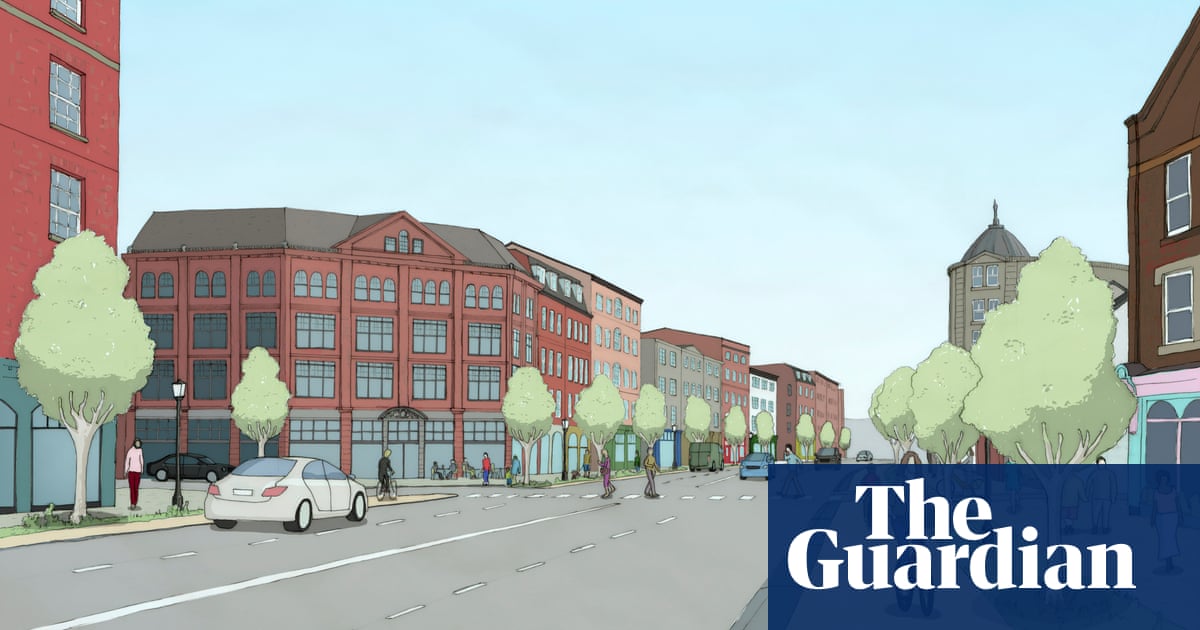Aren’t our roads generally much narrower than most other countries.
Yes. I guess they’re only talking about the wide ones.
M25?
No, no - roads. Not car parks.
deleted by creator
I don’t think the idea is to build houses on the wide roads, the idea is to build them beside the wide roads but remove space for private cars and instead repurpose that space for pedestrians and cyclists (in other words, have wide pavements ideally tree lined but instead of 4 wide lanes of cars maybe 2 narrow lanes with most of the space turned over as a public space for people).
@mackwinston @snacks perhaps one motor lane in the centre, with occasional unloading spaces.
deleted by creator
I like your idea, but that’s not what the article says
Needlessly wide roads should be torn up and replaced with boulevards of new housing
Only housing is mentioned.
"A boulevard is a type of broad avenue planted with rows of trees. " - Wikipedia
No, not just housing is mentioned but a boulevard and you cannot overlook that very important word and say the article only mentions “housing” because that is a seriously bad take on this article. By definition a boulevard is wide. It wouldn’t be a boulevard if they made the road narrow by building houses on the road rather than by the side of the road, so while the article doesn’t explicitly say it, by calling it “boulevards of new housing” implies that the thoroughfare does indeed remain wide, and becomes tree lined rather than car-lined.
The Cambridge English Dictionary defines a boulevard as:
“A wide road in a city, usually with trees on each side or along the centre”
(And not only is a “boulevard” mentioned in the article, the article also includes a picture of what a part of Rochdale would look like. The housing is on the side of the road, and some of the car lanes have been converted to pedestrian/cycling space, and trees are added).
This is the best summary I could come up with:
Needlessly wide roads should be torn up and replaced with boulevards of new housing, a thinktank led by the UK government’s most senior urbanism adviser has proposed, in a move likely to delight green belt campaigners but rile the motoring lobby.
Both initiatives have become lightning rods for wider political debates about personal freedom, inequality and, in some cases, conspiracy theories about shadowy forces attempting to control the population.
Steve Gooding, the director of the pro-motoring thinktank the RAC Foundation, said narrowing roads would require planners to decide which traffic they no longer wanted.
“Grand visions need to be backed up by meticulous planning and adequate funding if they are to be turned into a livable reality where our shops are well-stocked, our kids can get to school, and our home deliveries arrive when we expect them,” he said.
He conceded that increasing the number of 20mph zones meant sweeping junctions and large roundabouts designed decades ago for higher speeds could be revisited, but “it remains to be seen whether linking that with housing development unlocks the scale of investment that’s currently beyond the reach of our cash-strapped local councils”.
A scheme involving Rochdale council is exploring removing a turning lane from a four-lane urban highway at St Mary’s Gate in the north of the town, allowing designers to create a corner block, and adding 400 homes.
The original article contains 579 words, the summary contains 227 words. Saved 61%. I’m a bot and I’m open source!





